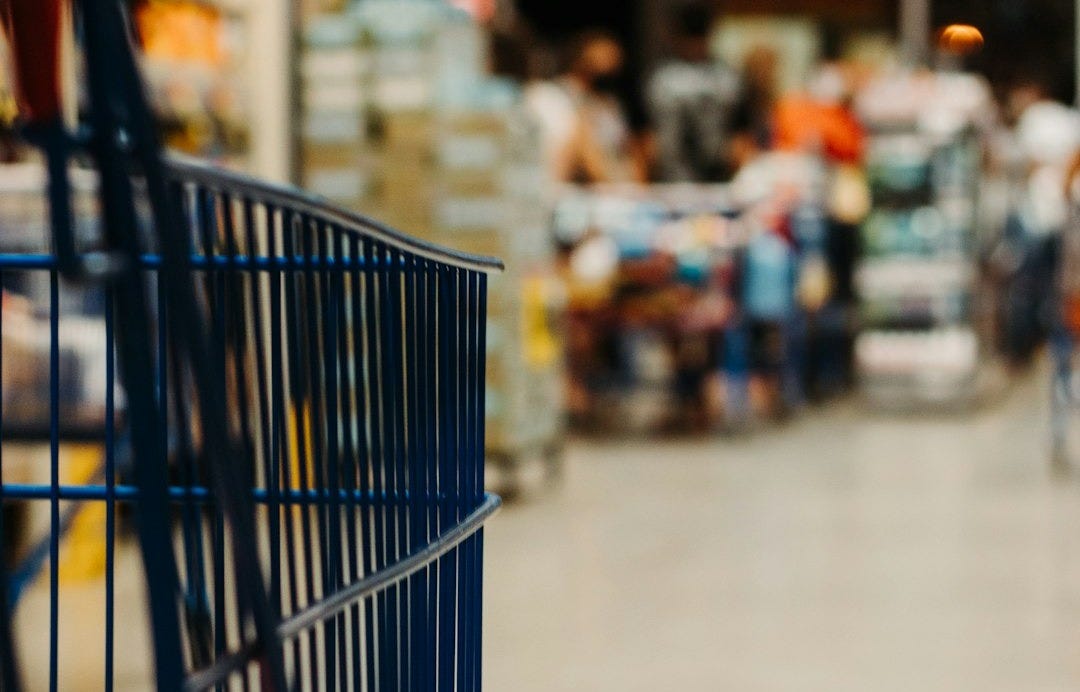Letter: Why Is It Easier to Find Booze Than Butter?
Jessica Graham questions the wisdom of overt alcohol promotion and sales in grocery stores and gas stations, where people with addictions must navigate a minefield for basic necessities.

LETTER TO THE EDITOR
I don’t know about you, but lately, when I’m wandering through our local grocery stores, searching for that one thing I need for dinner, I can’t help but notice how hard it’s become to find basic items.
What used to be a simple errand now feels like a scavenger hunt. And I find myself wondering: is it because so much space is now devoted to wine, cider, beer, and other alcohol?
Walk into almost any grocery store today, and you’ll see end caps displaying rosé, aisles of craft beers, and entire sections of hard seltzers. Where there used to be canned goods, spices, or baking supplies, there are now stacked cases of Chardonnay. I get it, alcohol sells, and stores want to make sure we see it at every turn.
And it’s not just grocery stores. I was pumping gas the other day when my daughter told me she was thirsty, so I ran inside past the spinning “Cold Beer Sold Here” sign to grab her a drink. What used to be a cooler stocked with pop, juices, and water had been overtaken by beer and energy drinks.
I think back to last Thanksgiving, when I realized I’d forgotten to buy butter and so headed to the Circle K — a place that once offered a decent selection of household grocery staples. But instead of finding what I needed, I found an entire wall of bunkers now dedicated to alcohol.
No matter where you go, you can’t avoid it.
But beyond inconvenience, there’s a deeper, more personal issue that weighs on me: those struggling with alcoholism, and their families.
What so many people don’t see is how these towering, unavoidable reminders of alcohol make everyday life harder for families like mine. A trip to the store isn’t just about groceries anymore. It’s about navigating a minefield.
When you love someone who battles alcohol addiction, you start to see these displays differently. The shelves and coolers aren’t just products — they’re triggers, memories, and sources of worry.
I can’t count the number of times I’ve walked into a store hoping to quickly grab what I need, only to feel my stomach tighten at the sight of yet another wall of beer, another display of wine. These constant reminders spark tension where we’re trying so hard to find peace.
It isn’t just the person struggling with addiction who feels it. It’s the whole family. Children who’ve seen what alcohol can do. Partners who live with the daily anxiety. A grocery store should feel like a safe, neutral space. But lately, it feels like there’s no escaping the presence of alcohol, even when we’re trying so hard to keep it out of our lives.
Cigarettes are rightfully hidden away behind cabinets, out of sight because of their health risks. I couldn’t even tell you what a pack looks like anymore.
But alcohol, which not only harms health but has also fueled generations of trauma, abuse, and accidents, is placed front and centre, impossible to miss. The mixed message is hard to ignore.
Don’t get me wrong — I’m not opposed to responsible alcohol sales. But when grabbing a stick of butter or a bottle of juice means weaving through walls of booze, something has gone off track.
Our stores should feed our families, not fuel their struggles.
Jessica Graham
Owen Sound
Letters to the Editor do not necessarily reflect the opinions or beliefs of The Owen Sound Current and its editor or publisher.





So well said!! I too live in a home which has struggled with alcoholism, and it is a very difficult path to recovery of this disease. And what about our young people who like all young people are curious, experiment, are enticed by these 'adult' only products. It is very easy now to acquire that which may lead to yet another victim of alcohol abuse or addiction. Do we really need this easy availablity? I can't help but believe that this is just another decision made to make more money not convenience or for the greater good.
Thank you Jessica for pointing out one of the main concerns that healthy alcohol policy specialists have noted for several years. Other concerns relate to research that increased alcohol marketing leads to increased use ( the actual aim of marketing after all) especially with younger drinkers. We did learn learn the lesson with tobacco which remains legal but not promoted because we knew there were harms associated with its use. The same goes for alcohol. We really don't need to market it and the arguement that it is too far to drive to an LCBO just doesn't hold water in a city environment.